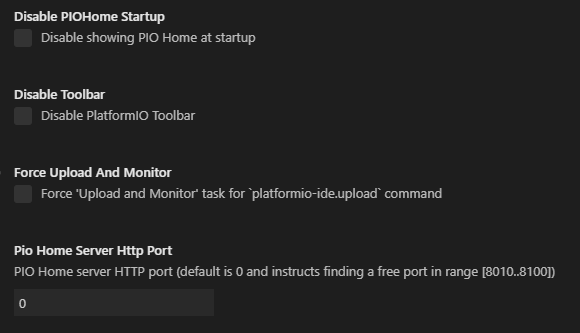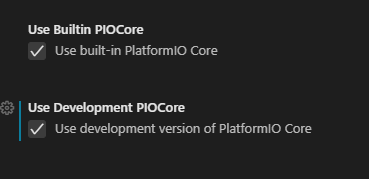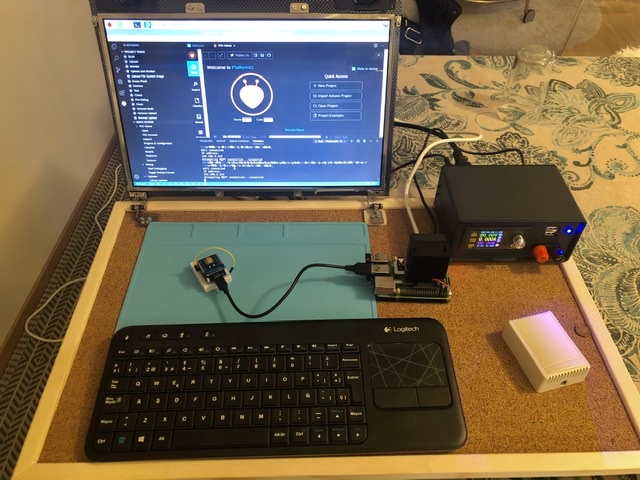So, as I was unsure what I did before, I decided to start from scratch with a clean system…
Right now I’m just as at the beginning, and when trying to start home I get the error below.
Before trying to install the PIO Core and start it from command line, I’ll do some research, in case there’s something I’m missing in the setup (Paths, Dependencies…), but if you have any advice on this moment, I’d appreciate guidance.
Thanks.
The error I get right now:
pi@raspberrypi:~ $ pio home
+Error: Traceback (most recent call last):
File “/home/pi/.platformio/penv/lib/python3.7/site-packages/platformio/main.py”, line 102, in main
cli() # pylint: disable=no-value-for-parameter
File “/home/pi/.platformio/penv/lib/python3.7/site-packages/click/core.py”, line 764, in call
return self.main(*args, **kwargs)
File “/home/pi/.platformio/penv/lib/python3.7/site-packages/click/core.py”, line 717, in main
rv = self.invoke(ctx)
File “/home/pi/.platformio/penv/lib/python3.7/site-packages/platformio/commands/init.py”, line 44, in invoke
return super(PlatformioCLI, self).invoke(ctx)
File “/home/pi/.platformio/penv/lib/python3.7/site-packages/click/core.py”, line 1137, in invoke
return _process_result(sub_ctx.command.invoke(sub_ctx))
File “/home/pi/.platformio/penv/lib/python3.7/site-packages/click/core.py”, line 956, in invoke
return ctx.invoke(self.callback, **ctx.params)
File “/home/pi/.platformio/penv/lib/python3.7/site-packages/click/core.py”, line 555, in invoke
return callback(*args, **kwargs)
File “/home/pi/.platformio/penv/lib/python3.7/site-packages/platformio/commands/home/command.py”, line 52, in cli
from autobahn.twisted.resource import WebSocketResource
File “/home/pi/.platformio/packages/contrib-pysite/autobahn/twisted/init.py”, line 58, in
from autobahn.twisted.wamp import ApplicationSession
File “/home/pi/.platformio/packages/contrib-pysite/autobahn/twisted/wamp.py”, line 50, in
from autobahn.wamp import protocol, auth
File “/home/pi/.platformio/packages/contrib-pysite/autobahn/wamp/auth.py”, line 43, in
from cryptography.hazmat.primitives.kdf.pbkdf2 import PBKDF2HMAC
File “/home/pi/.platformio/packages/contrib-pysite/cryptography/hazmat/primitives/kdf/pbkdf2.py”, line 12, in
from cryptography.hazmat.primitives import constant_time
File “/home/pi/.platformio/packages/contrib-pysite/cryptography/hazmat/primitives/constant_time.py”, line 11, in
from cryptography.hazmat.bindings._constant_time import lib
ImportError: /home/pi/.platformio/packages/contrib-pysite/cryptography/hazmat/bindings/_constant_time.abi3.so: cannot open shared object file: No such file or directory
============================================================
An unexpected error occurred. Further steps:
============================================================


